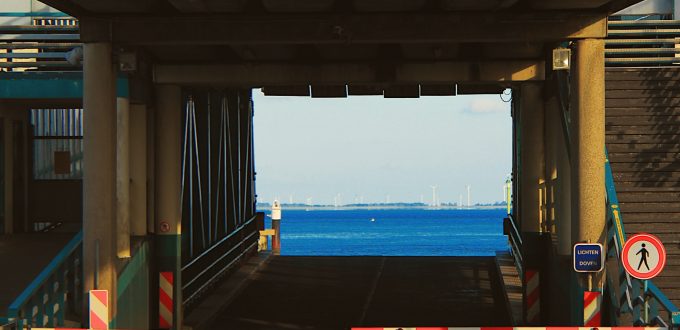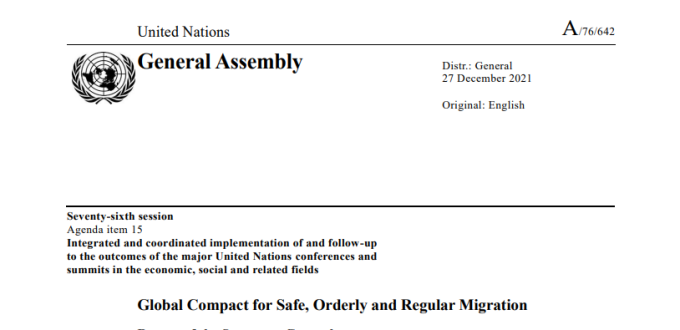Recently, however, our attention was drawn to a leaked 2019 document produced by the European Commission’s legal service, titled ‘The legal effects of the adoption of the Global Compact for Safe, Orderly and Regular Migration by the UN General Assembly.’ This document suggests that the MC has ‘legal effects’ on EU development policy. The document […]
Implementing Migrant Protection? The UN’s Second Report on the Implementation of the Global Compact
In this blog post, Maja Grundler and Elspeth Guild discuss the Report’s approach to monitoring implementation of the MC. They argue that more explicit engagement with the MC’s objectives and detailed provisions, as well as concrete suggestions for actions for achieving, and criteria for measuring, progress should be the focus of future implementation reports. […]
PROTECT Expert Forum 13-14 November 2020
Forum title: The Two UN Compacts – Refugees and Migrants: Challenges and Implementation in Europes When: 13-14 November 2020 Where: Online Hosts: Queen Mary University of London Background In 2019 the UN concluded two years of stocktaking and negotiations by adopting the Marrakesh Compact for Safe, Orderly and Regular Migration (The Marrakesh Compact). The Compact […]
PROTECT partner presentations: The Queen Mary University of London
The Queen Mary University of London is one of PROTECT’s two UK-based teams. The team is led by the distinguished EU law and migration expert Elspeth Guild, joining her are the aspiring law scholar Kathryn Allinson and Nicolette Busuttil. Together, the team has followed the processes surrounding the UN Compacts on Migrants and Refugees closely and explored their potential in advancing the international protection system.
Detention of refugees, asylum seekers and migrants under Corona lockdown risks becoming arbitrary
As the Covid-19 pandemic has tightened its grip on many western states, many refugees, asylum seekers, and migrants continue to be detained in reception and detention centres, without any prospect of release. With asylum processing at a standstill and returns to countries of origin on hold, detention of these individuals risks becoming arbitrary, if not inhumane.





